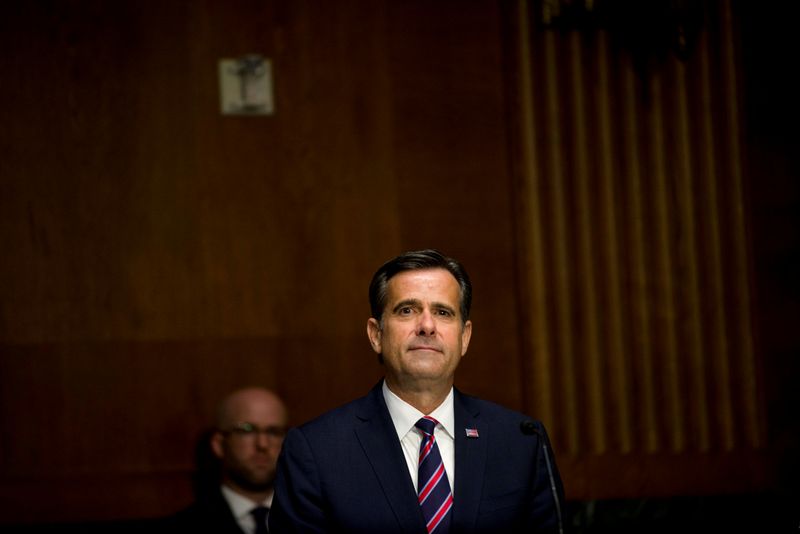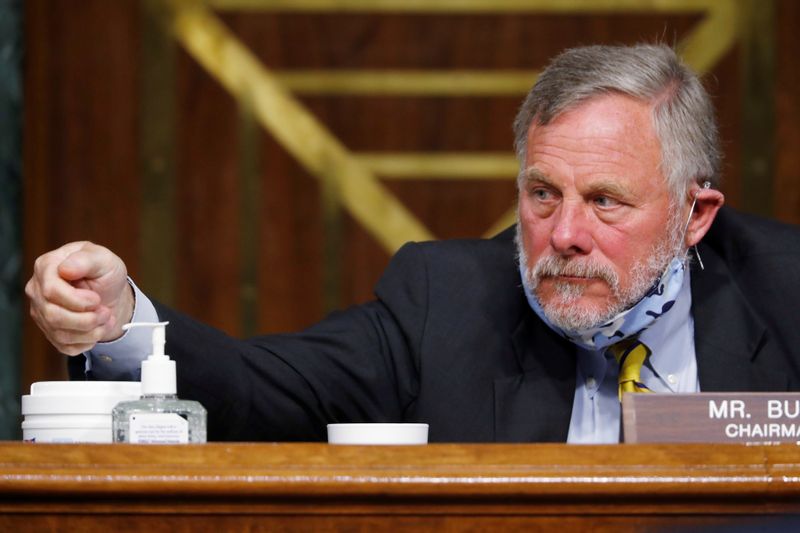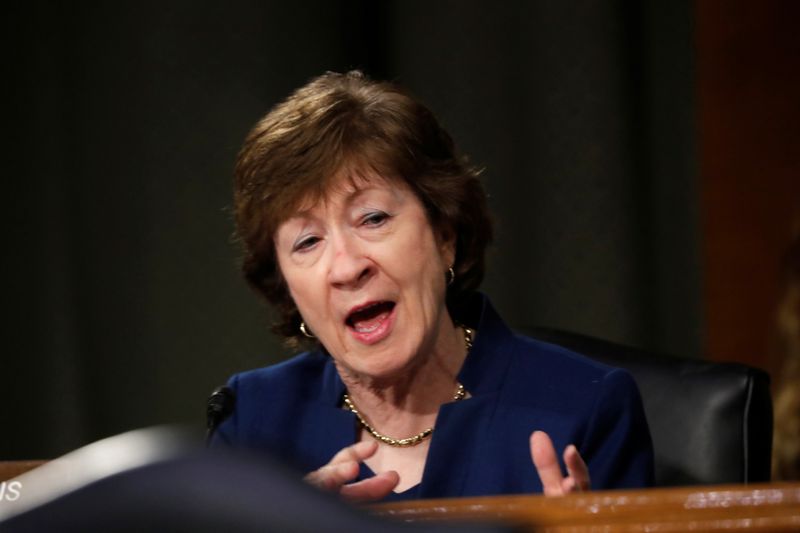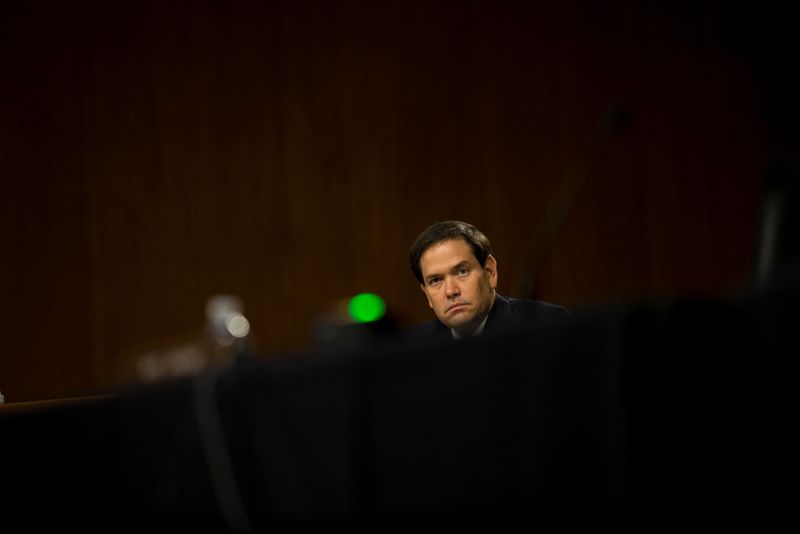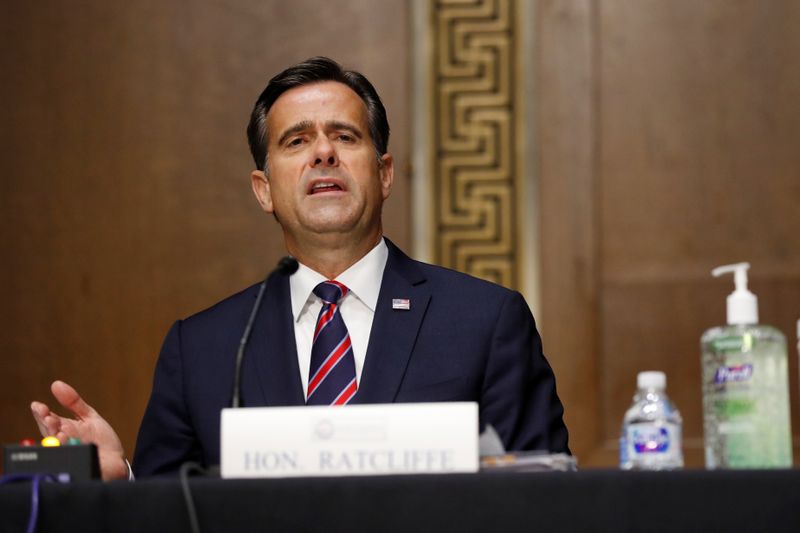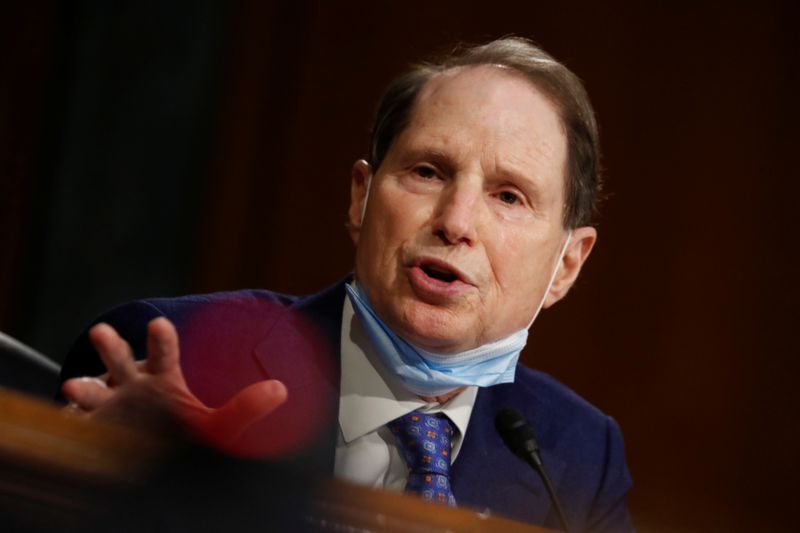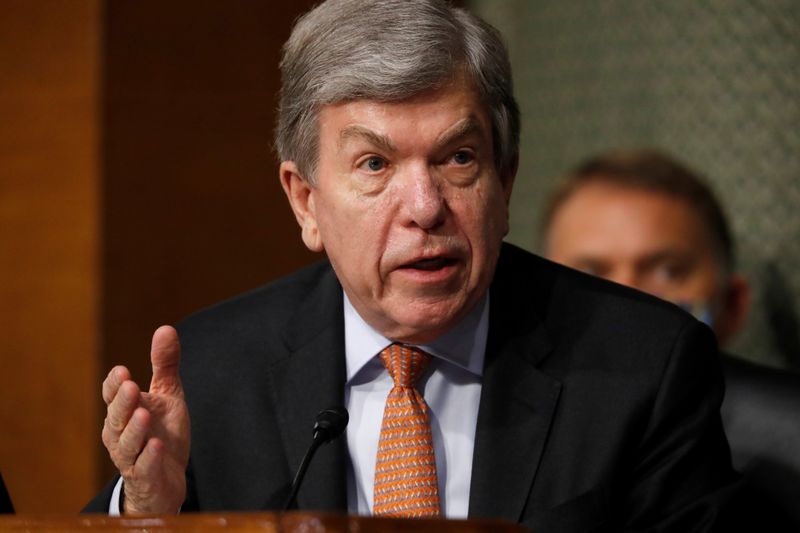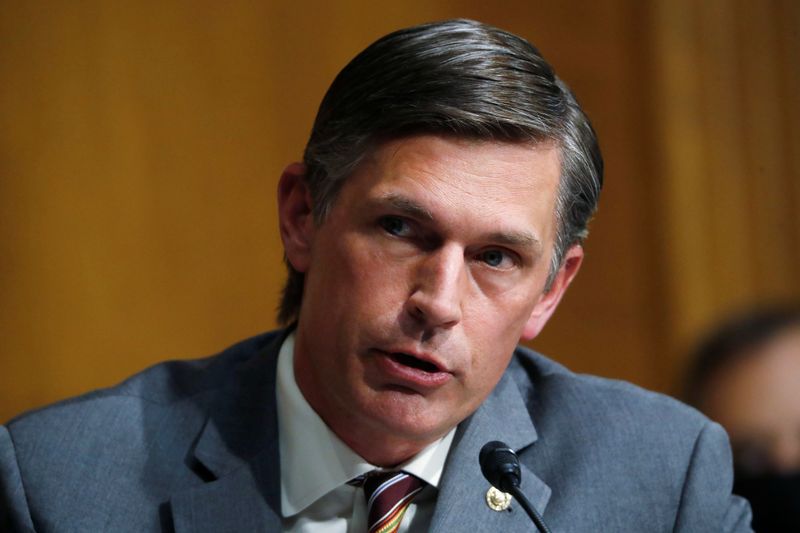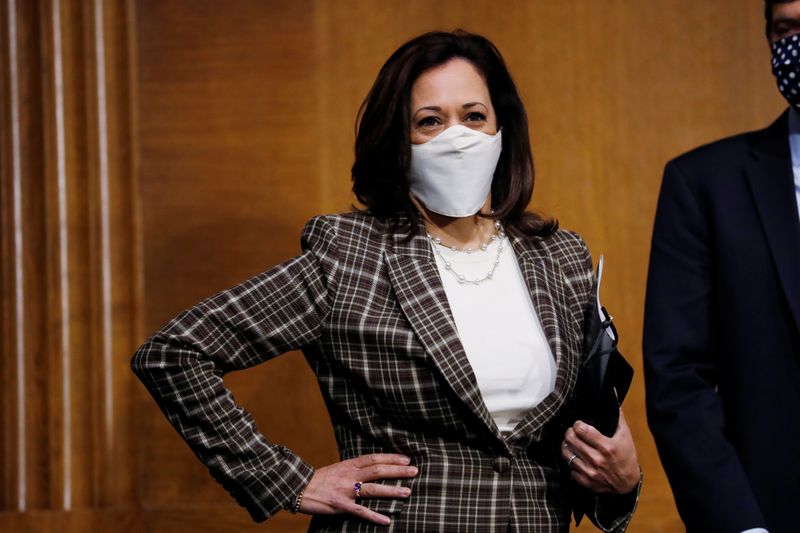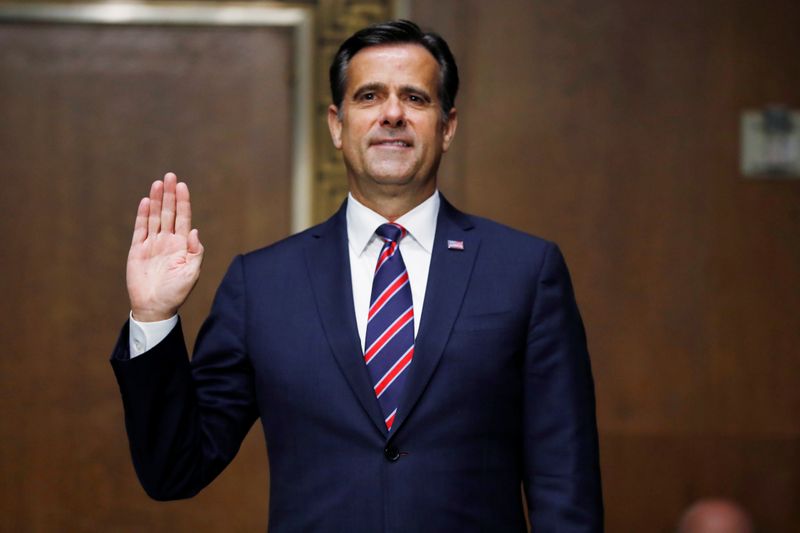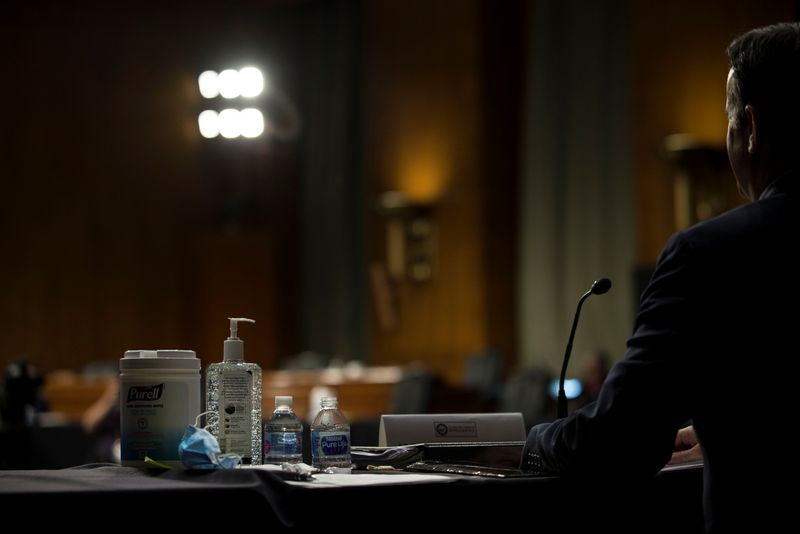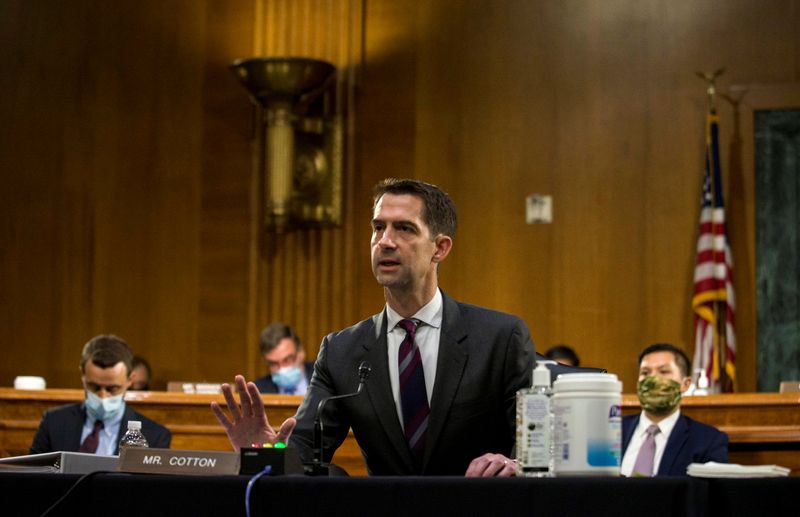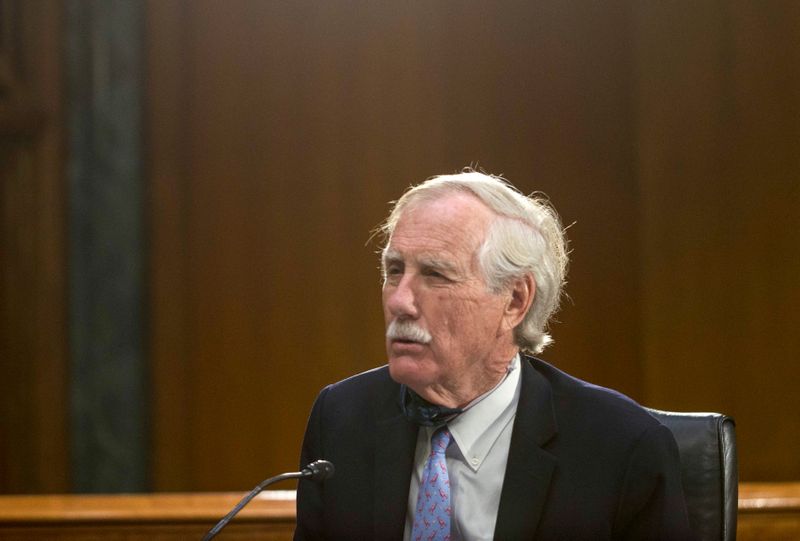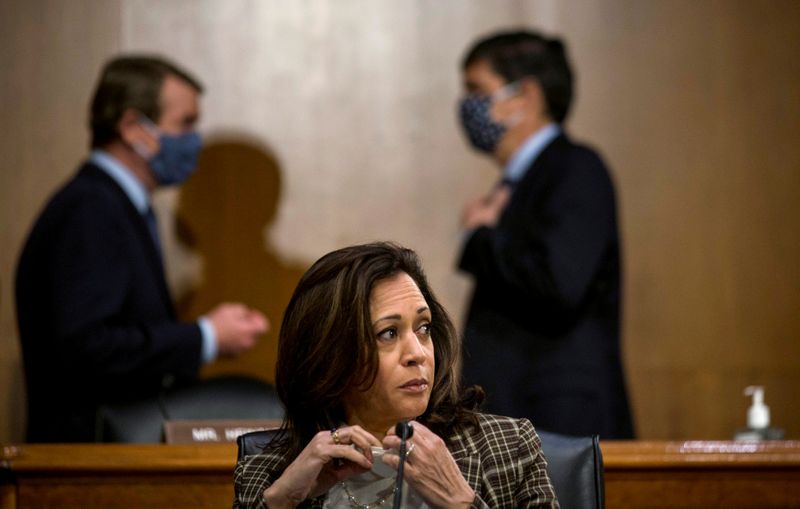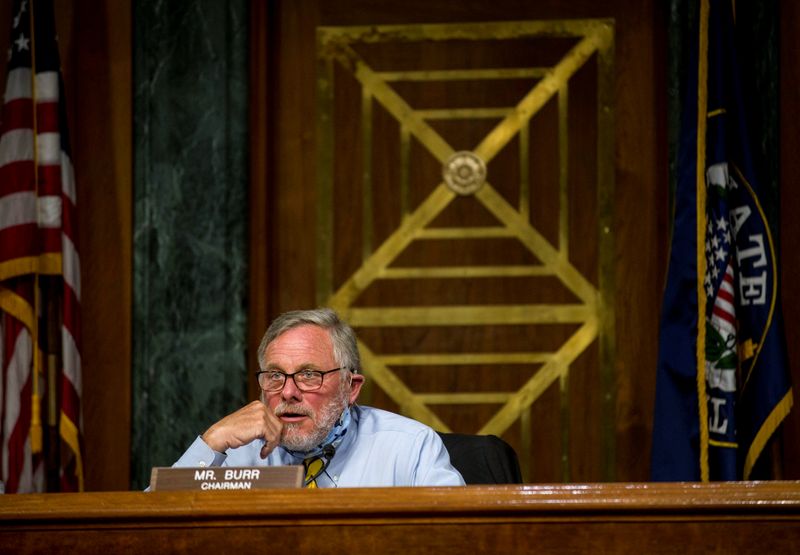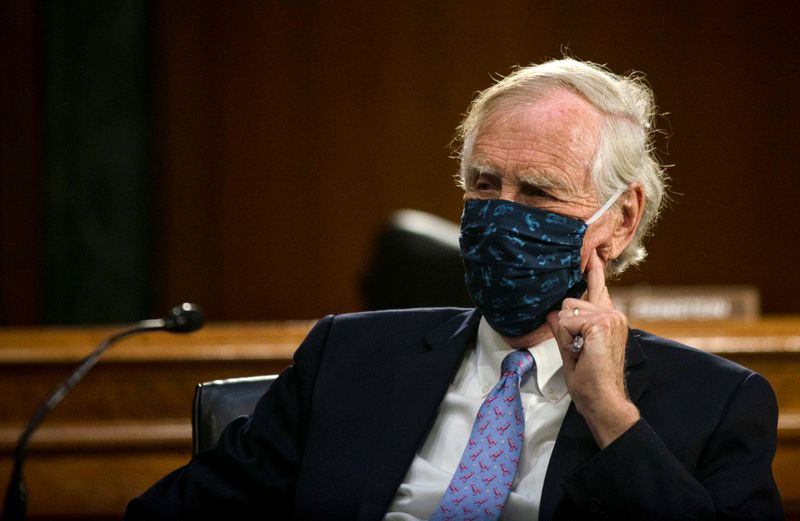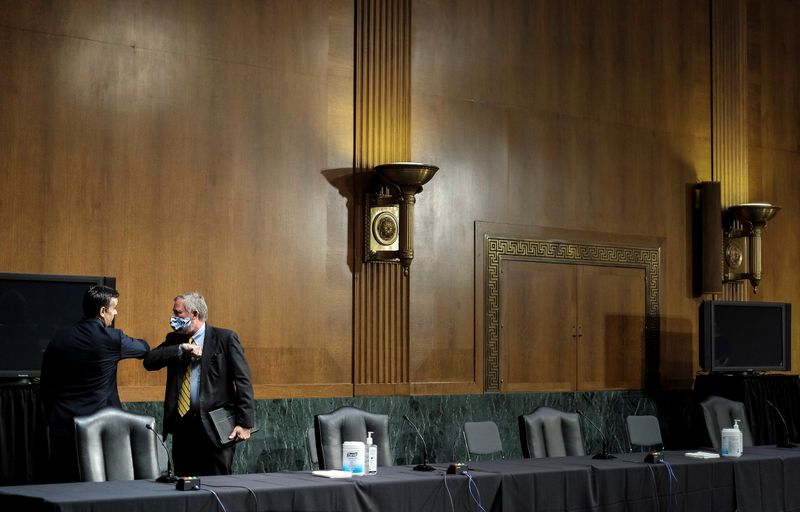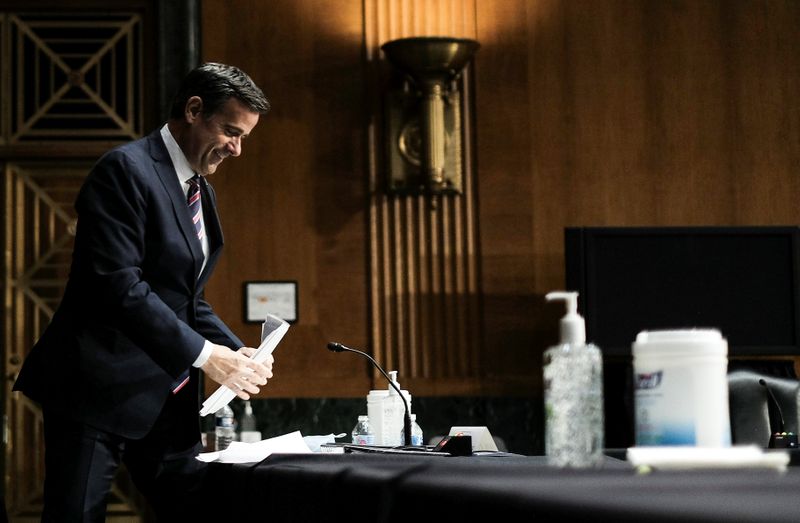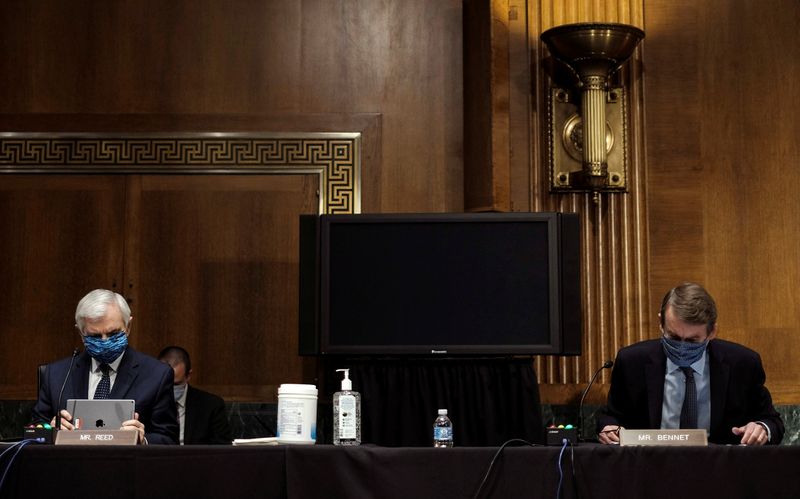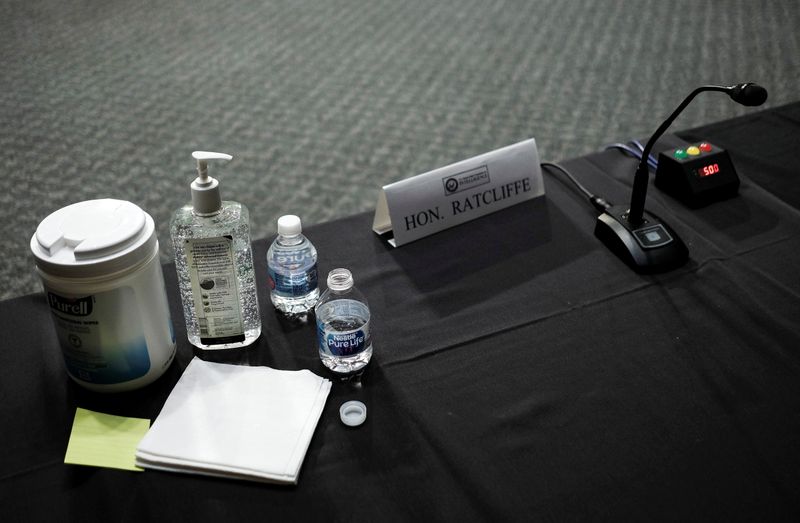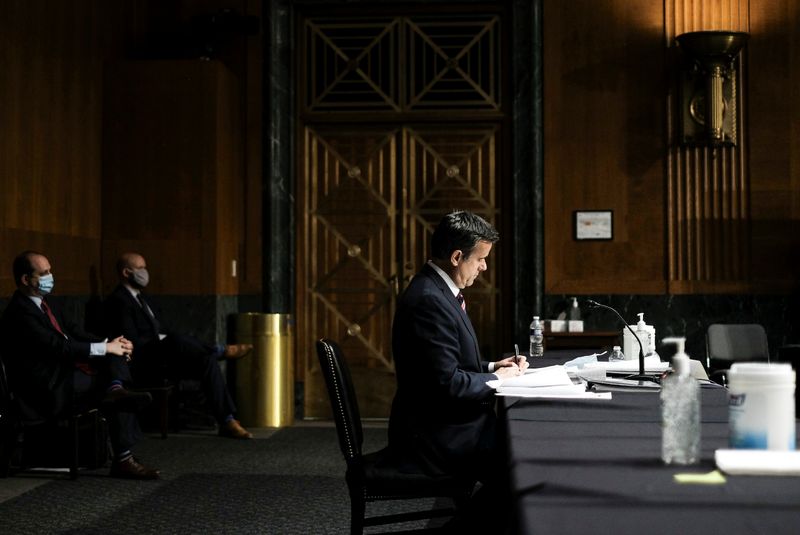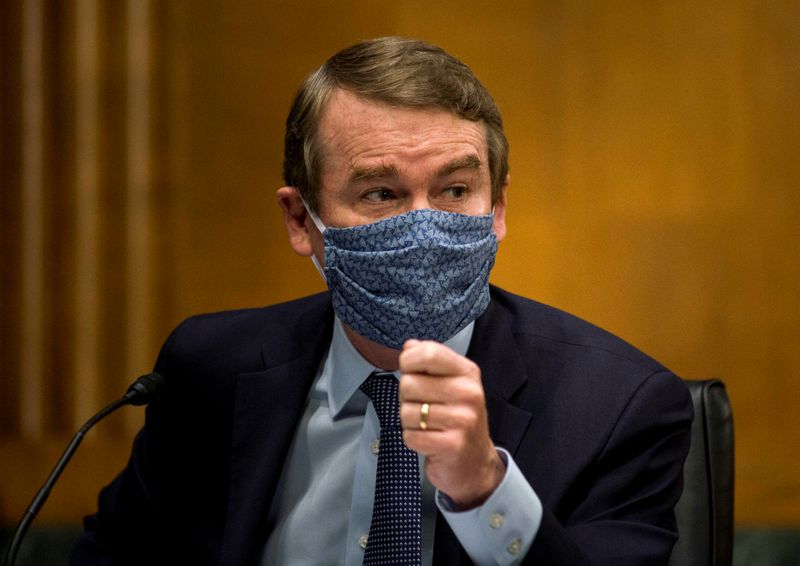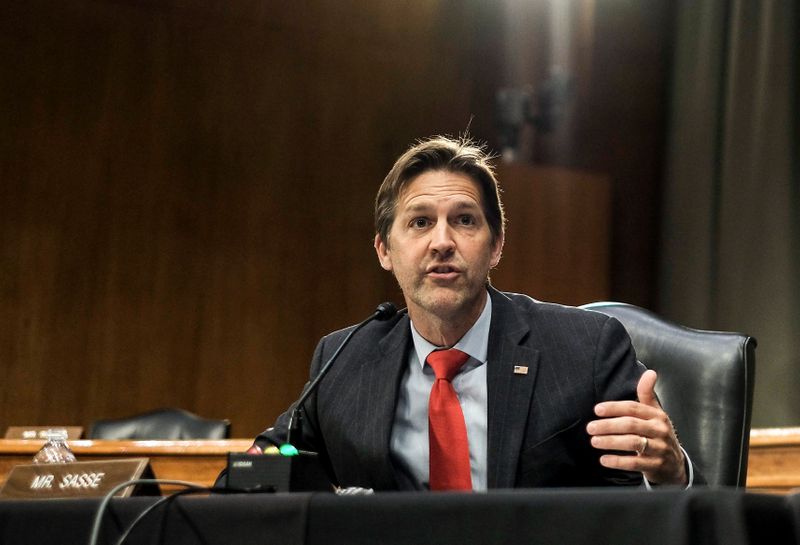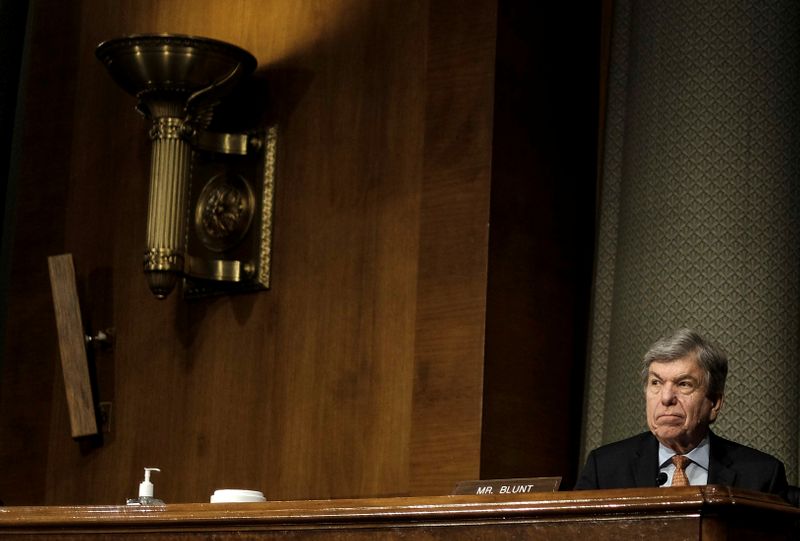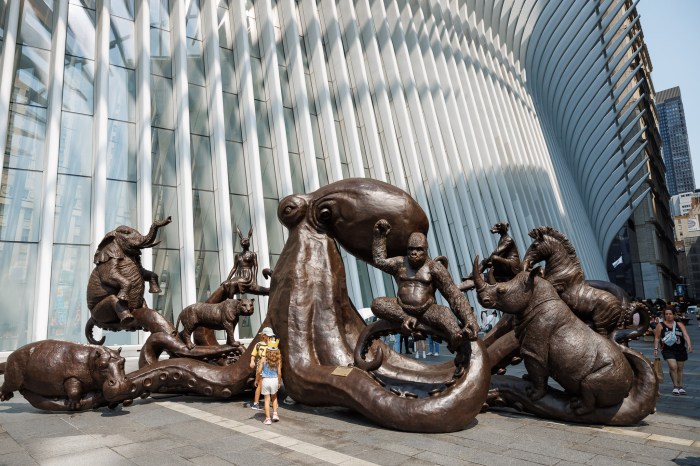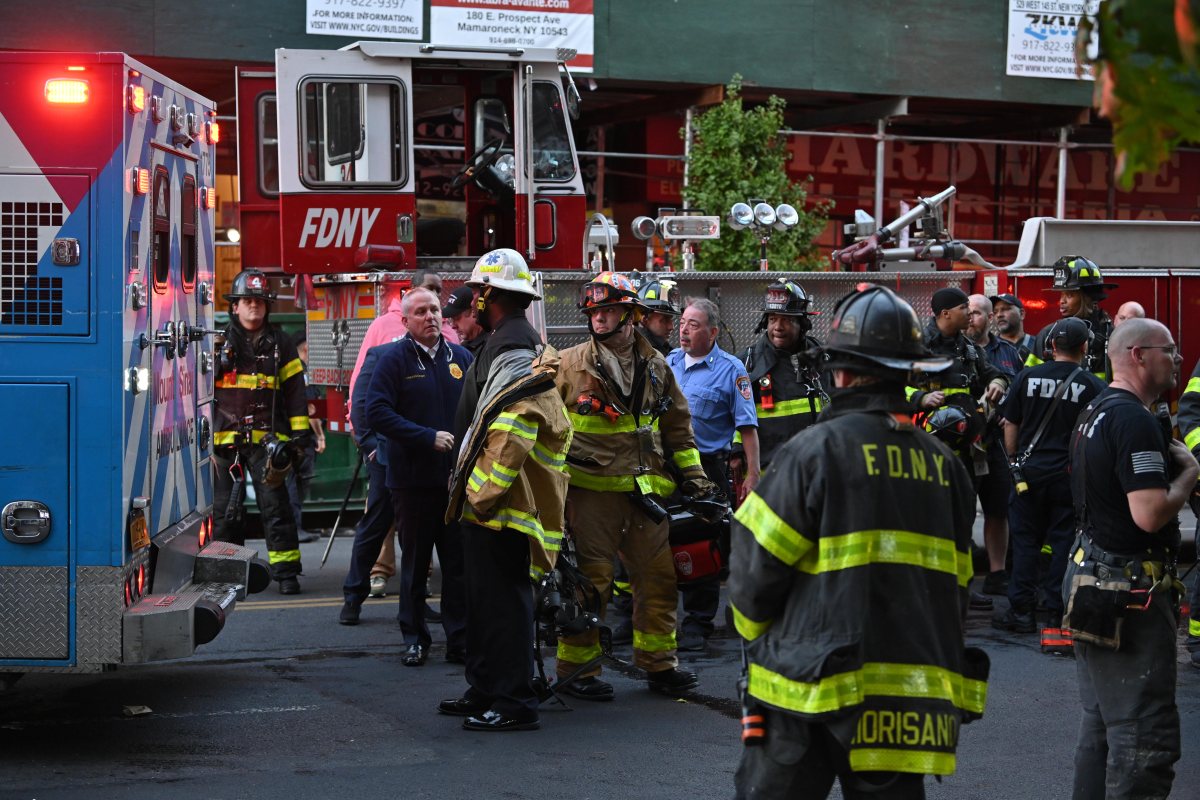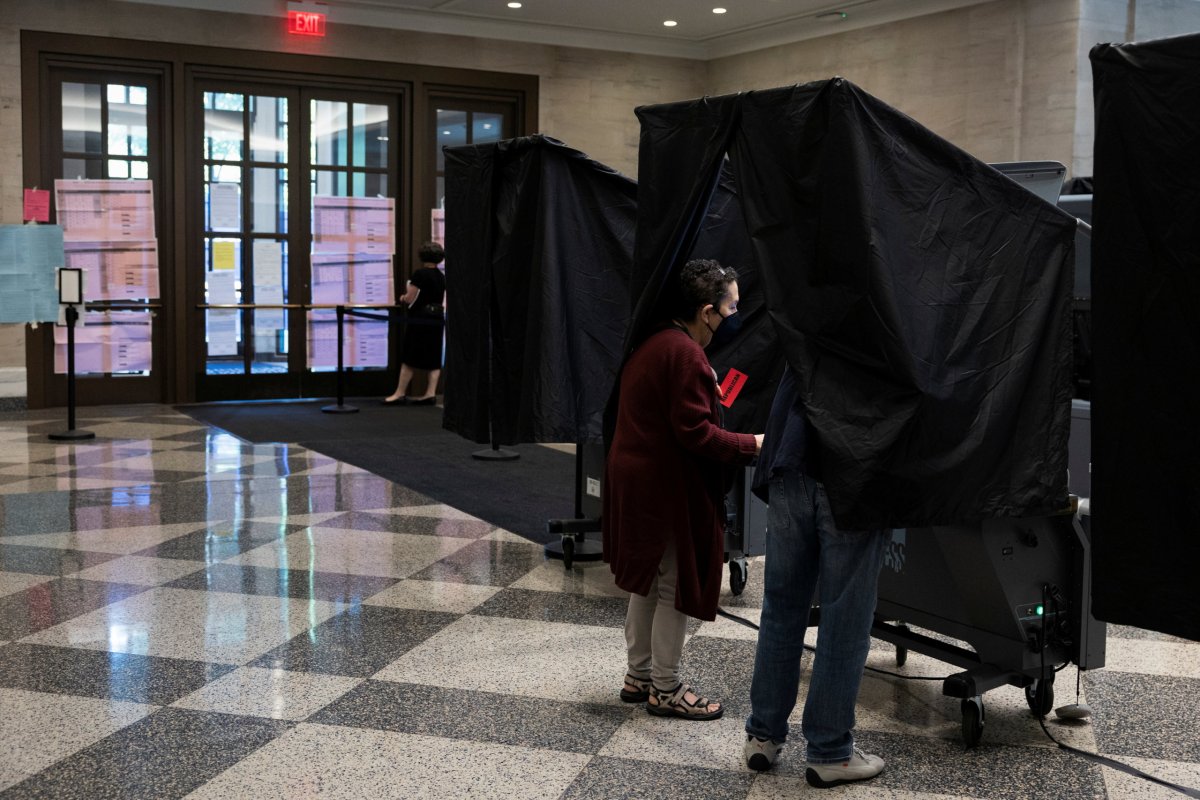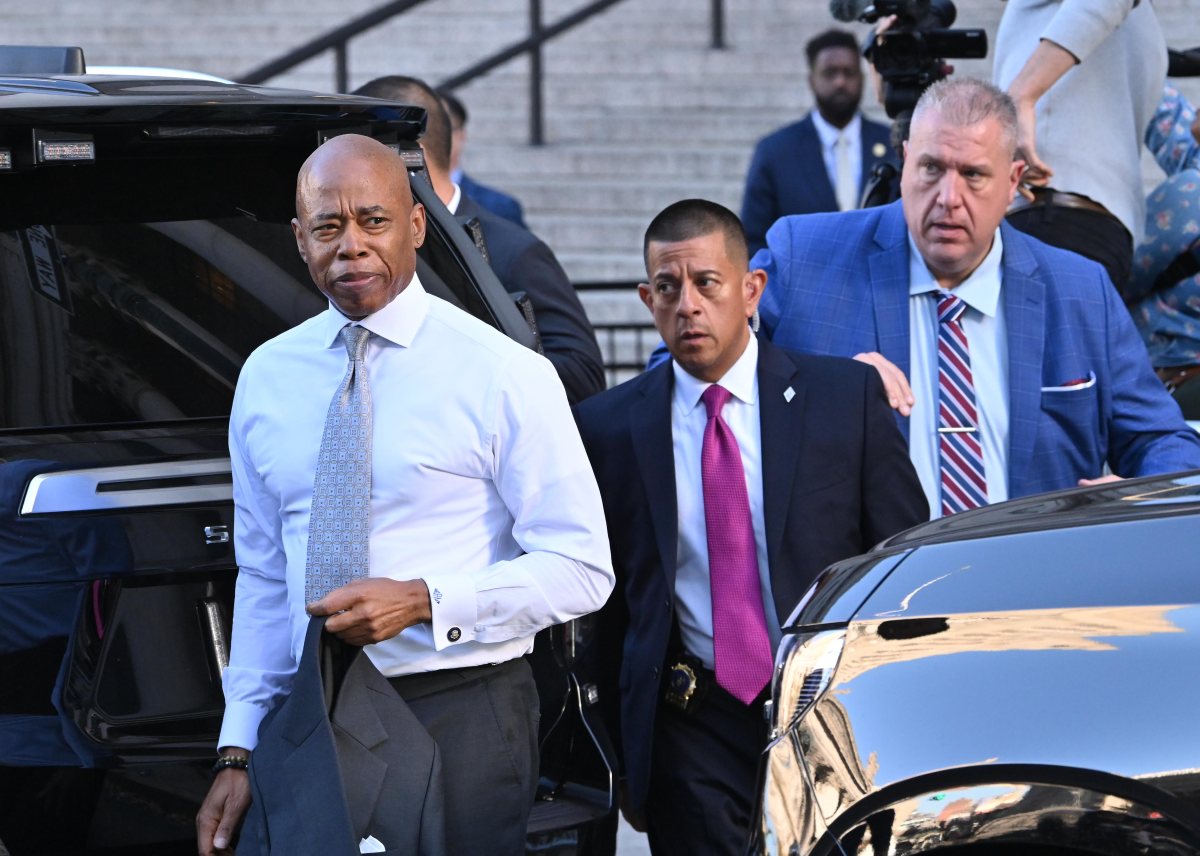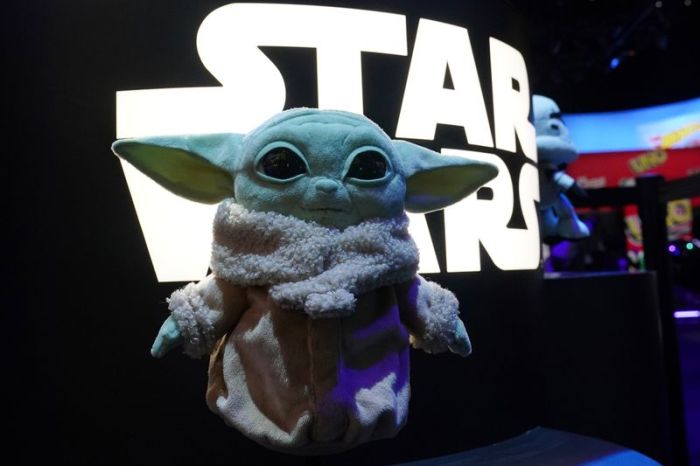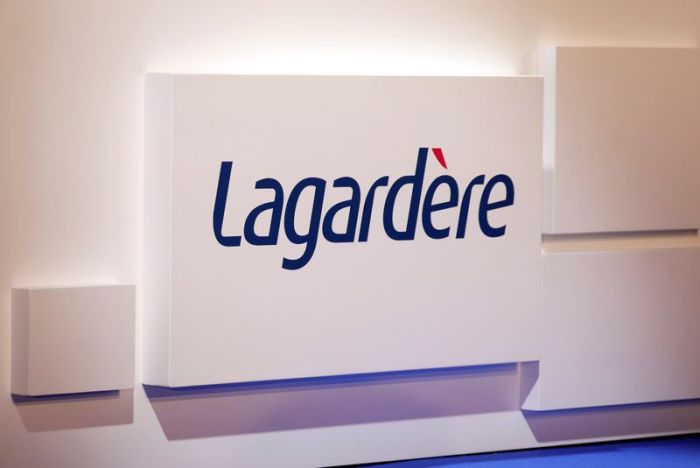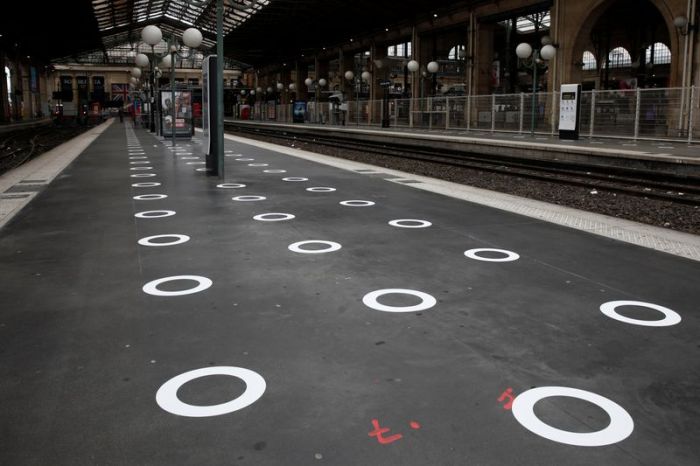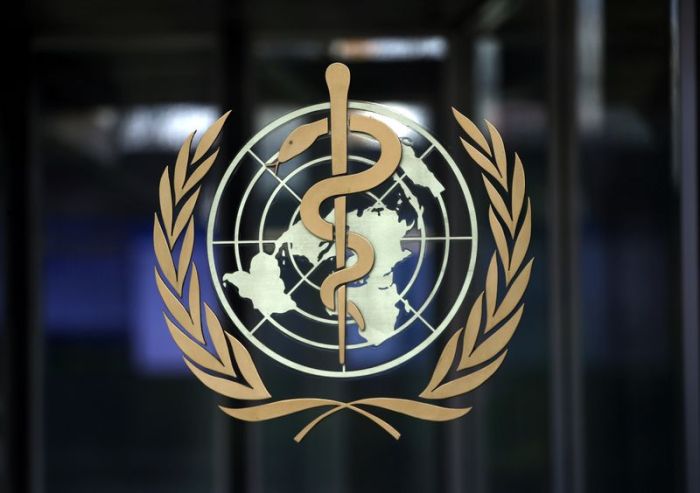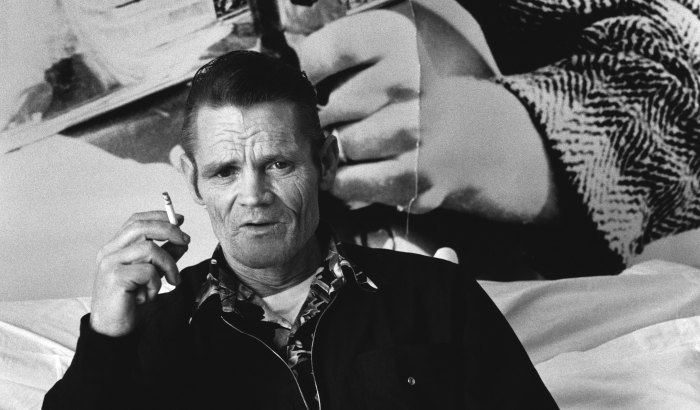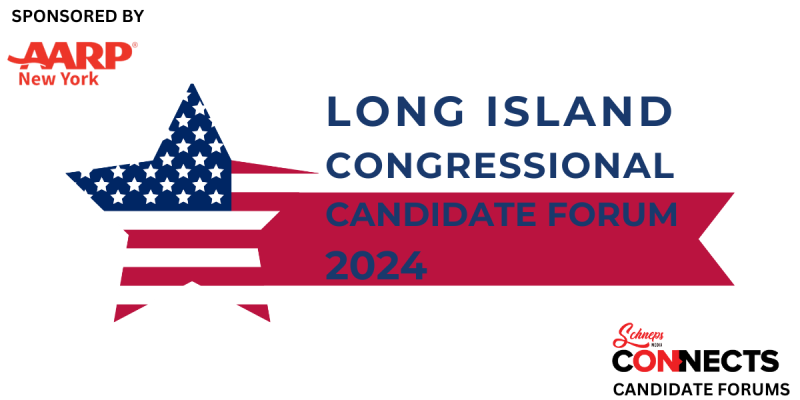WASHINGTON (Reuters) – U.S. senators on Tuesday pressed Donald Trump’s nominee to lead U.S. intelligence on whether he would act independently of the president on hot-button issues like the origins of the coronavirus in China, as lawmakers held the first public socially distanced hearing during the coronavirus pandemic.
Both Republicans and Democrats at the Senate Intelligence Committee’s confirmation hearing wanted to know how Representative John Ratcliffe would manage pressure from Trump, a president who has often been at odds with spy agencies.
The three-term Republican House of Representatives member, who fervently supported Trump during impeachment, pledged repeatedly that he would not be influenced by pressure from the Republican president or any other official.
“The intelligence I deliver will not be subject to outside influence,” he said.
Many questions for the nominee to lead 17 U.S. intelligence agencies centered on the coronavirus and China, the country Trump has partly blamed for the devastating impact on the United States.
The cavernous hearing room was eerily empty, as senators observed strict protocols to protect against the spread of the coronavirus. Ratcliffe said that if confirmed, he would focus on the virus’ impact, questions about its origins in China and U.S. competition with Beijing.
“If confirmed, the intelligence community will be laser focused on getting all the answers that we can regarding how this happened,” Ratcliffe said.
Trump’s administration and the government in Beijing have engaged in a war of words over how the coronavirus spread. The illness has killed more than 70,000 people in the United States and cratered the country’s economy, complicating Trump’s run for re-election in November.
Ratcliffe said he viewed China as the greatest threat to the United States, on many fronts. “I won’t say all roads lead to China, but a lot of them do,” he said.
Trump nominated Ratcliffe, a member of the House of Representatives Intelligence Committee since January 2019, to be director of national intelligence last summer. Ratcliffe withdraw amid questions about his lack of experience and partisan reputation, but Trump nominated him again this year.
Now, a few Republican committee members, including Chairman Richard Burr, pledged to vote for Ratcliffe, while stressing the need for the director to be politically independent.
PARTISANSHIP
Democrats appeared unconvinced.
The committee’s top Democrat, Senator Mark Warner, said he was concerned about partisanship, especially regarding intelligence oversight and whistleblowers.
“I have to say that, while I am willing to give you the benefit of the doubt in this hearing, I don’t see what has changed since last summer,” Warner said.
There has been no Senate-confirmed director of national intelligence since August, when former Republican Senator Dan Coats retired. The current acting DNI, Ambassador to Germany Richard Grenell, is seen as a fierce Trump partisan.
Trump and aides have sharply criticized intelligence officials, accusing them of working for a “Deep State” seeking to undermine his presidency.
Ratcliffe repeatedly praised them.
“I don’t think that the men and women of the intelligence community are running amok,” he said.
Burr, who privately criticized Ratcliffe when his name was first floated last year, promised the Republican-majority panel would recommend Ratcliffe to the full Senate next week. Trump’s fellow Republicans hold a narrow 53-47 majority in the chamber. Ratcliffe needs 51 votes for confirmation, so approval is likely.
Trump infuriated Democrats and attracted criticism from some Republicans last month by firing Intelligence Community Inspector General Michael Atkinson, who sent Congress a whistleblower complaint alleging Trump sought to persuade Ukraine’s president to collect potentially damaging information on former Vice President Joe Biden, a Trump political rival.
That report became central to Trump’s impeachment.
Questioned by Democratic Senator Dianne Feinstein about assertions that the whistleblower made false statements, Ratcliffe said he did not want to “relitigate” Trump’s impeachment and felt the House had denied him due process. Trump was acquitted by the Senate.
Much about the hearing was unusual, or unprecedented. Ratcliffe’s family did not attend. Former Attorney General John Ashcroft supported Ratcliffe, but only in a written statement read by Senator John Cornyn, a committee member.
Some staff and senators wore masks into the room, but removed them to speak. Ratcliffe did not wear a mask. Members of the press were limited to a small number.
Burr closely questioned Ratcliffe about his view of Russian interference in U.S. elections. The nominee said he agreed that Russia sought to sow discord in the United States and interfere in the 2016 and 2018 campaigns.
Trump has rejected intelligence community conclusions that Moscow sought to boost his candidacy.
“I will deliver the unvarnished truth, it won’t be shaded for anyone,” Ratcliffe said under questioning from Senator Susan Collins, one of the Senate’s most moderate Republicans.
(Reporting by Patricia Zengerle and Mark Hosenball; Editing by Mary Milliken, Alistair Bell and Peter Cooney)

